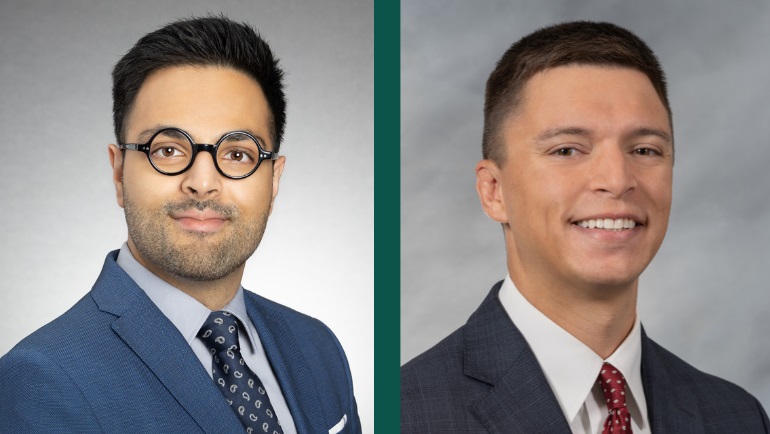
Arif Musa and Collin Bennett, two fourth-year medical students at the Wayne State University School of Medicine, are members of an international team proving that the addition of the common anesthetic lidocaine does not reduce cumulative morphine consumption after spine surgery.
“The increased consumption of opioids for pain management in the United States and the subsequent side effects and dependence has left physicians and patients looking for an alternative. Our research shows that further and more extensive studies using lidocaine as an alternative to opioids for spinal surgery need to be done,” Bennett said.
The study sought to evaluate the role of intravenous lidocaine as a supplemental pain control in patients undergoing spine surgery. The team analyzed data from 235 patients.
“Intravenous lidocaine in spine surgery: A meta-analysis of randomized controlled trials” is included in this month’s edition of the North American Spine Society Journal.
“There was similarly no difference in postoperative pain between patients given lidocaine and the control group. Patients who were administered lidocaine did not have a significantly higher complication rate, such as from nausea, vomiting, pneumonia, delirium or surgical site infection,” Musa said.
The study was presented at the 2021 American Academy of Neurological Surgeons meeting, the 2021 Detroit Medical Center Quesst Symposium, and the Wayne State University School of Medicine Orthopaedic Surgery Interest Group Clinical Research Showcase in 2020 and 2019, where it was awarded a poster presentation award.
Medical students and clinicians from departments of Orthopedic Surgery, Neurological Surgery and Anesthesiology from Michigan, California, Florida and Switzerland teamed up for the study. In addition to Bennett and Musa, team members included Detroit Medical Center Sports Medicine physician Christopher Cooke, M.D.; a medical student from Florida Atlantic University; a medical student and physicians from the University of California Irvine; as well as collaborators from Oroville Hospital General Orthopaedics; University of Michigan Neurosurgery; Neurochirurgie Fathi AG in Switzerland; and Restore Orthopedics and Spine Center in Orange, Calif.